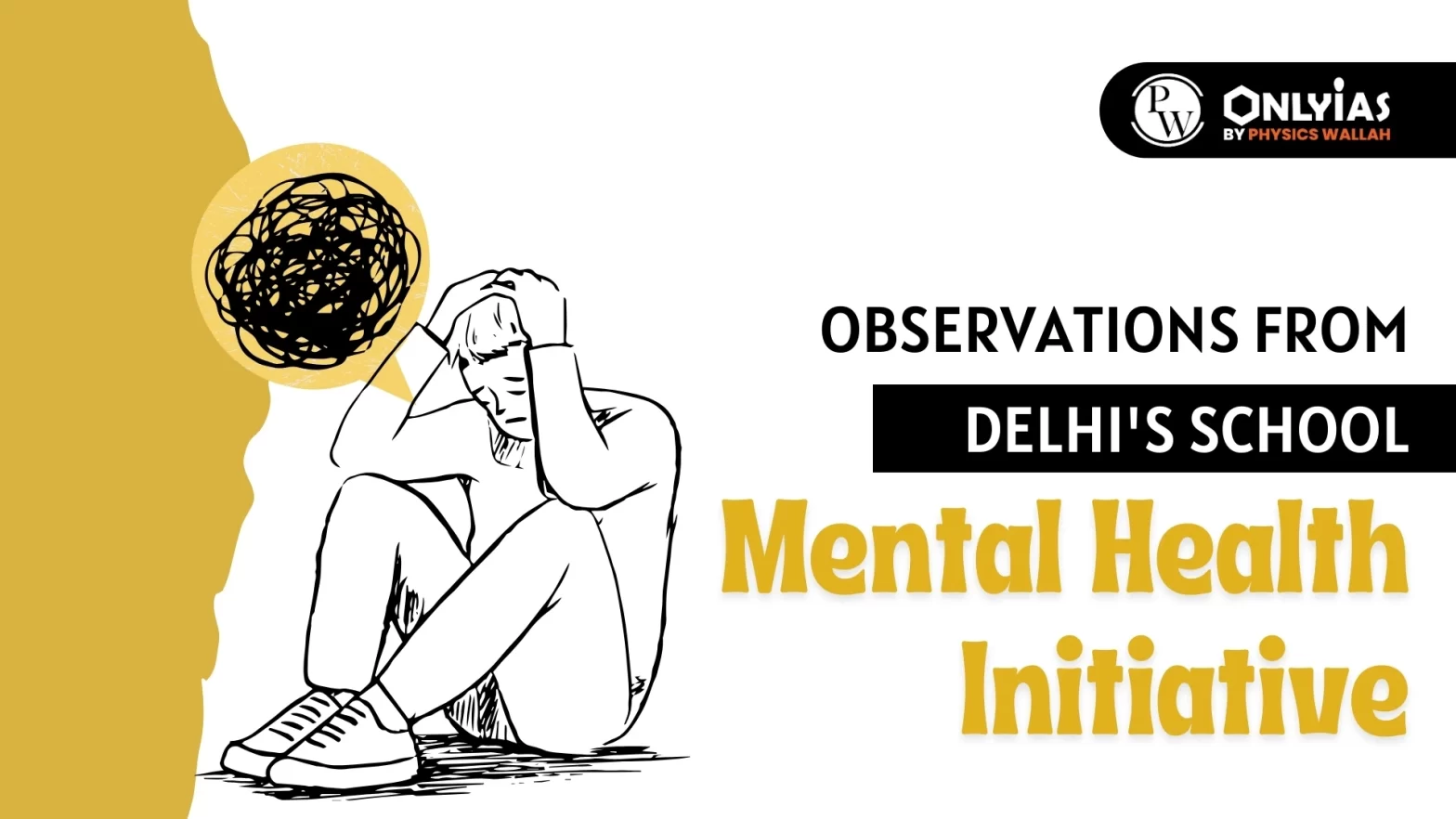Context: This article is based on an Editorial “Anxiety, bullying: Year-long project offers insights into mental health of Delhi children” which was published in the Hindu. As part of an initiative called School Mental Health, the Delhi government partnered with the Institute of Human Behaviour and Allied Science (IHBAS) to provide primary mental health services in schools under the Directorate of Education and capture how kids from Classes VI to XII struggled with mental health problems and bullying.
| Relevancy for Mains: Ethics- Measures that can be taken to reduce the Mental Stress of School Children. |
About the School Mental Health Initiative
- Impact of Pandemic: It was a year-long project, where counselors conducted sessions with more than 20,000 students in 20 schools and found that things changed drastically post the pandemic.
- During the pandemic, children had a bad time. Many lost their parents, family members, and valuable time of their childhood.
- Negligence towards Sessions: Around 200 children from various schools were referred to higher centres for specialized care, however, not many showed up and almost 15 were referred to IHBAS, but only 6-7 followed up with the sessions.
School Mental Health: Observations
- After pandemic, issues like anger, anxiety, screen addiction and self-harm more visible
- Worried about studies, bullying and lack of concentration
- Lack of parent-child communication
- Students from lower income groups lack parental support
School Mental Health: Causes of Such Behavior
- Anxiety in senior classes related to careers, relationships.
- This is the age when students want to explore new things and they try to act like adults but exactly they are not adults.
- Junior classes struggled with peer relationships, bullying and lack of conversation between them and their parents.
- It made them angry and anxious.
- Exposure to domestic violence leads to aggressive behavior.
- Excessive screen time exposes them to inappropriate content referrals.
Way Forward to the School Mental Health
- Create more awareness about mental health issues
- Sensitize teachers to avoid insensitive remarks
- Bridge gap between school counseling and further treatment
- Focus on enabling Parent-Child Communication
Conclusion:
Addressing the mental health challenges faced by school children, exacerbated by the pandemic, requires a concerted effort involving increased awareness, sensitivity training for educators, bridging the gap between school counseling and specialized care, and fostering open communication between parents and children.
Must Read: The Impacts Of Social Media On Children: Positive & Negative
![]() 22 Dec 2023
22 Dec 2023
